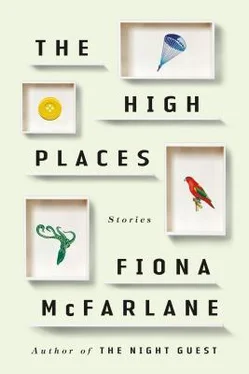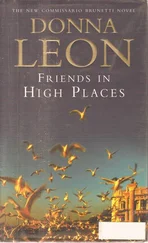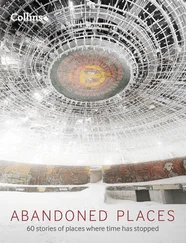‘I’m very happy for you,’ she said in a conclusive tone, as if the shape of her life had now been decided. They walked back through the park to St James station, neither of them speaking much, and he kissed her there for the first time.
* * *
The wet winter became a clear spring, and Henry bought a car and wooed Ellie among all the secret suburbs of Sydney’s northern coast, their palms and coves and their small significant bays. They swam together in the hot honeymoon water and manoeuvred behind the tricky rocks to kiss. She remained faithful to her Friday-night art-appreciation classes, so Saturday became their weekend night: Henry stopped going to the horses and took Ellie out instead. On Sundays he still lunched at home, and afterward — now that his Sunday evenings were free — he helped his mother sort through her possessions in readiness for her move to Victoria. She had acquired more in her quiet life than Henry could quite account for, and she spent a great deal of time over each object, as if every Christmas ornament or book or porcelain figurine were worthy of attention. Something was slowing her progress and delaying the move — a nostalgic tenderness, Henry thought, a formless sentimentality. It worried him, until he realised that she was waiting for him to announce his engagement. She would move when she knew he was settled.
During this period Henry cultivated a brittle beard. He bought a suit of navy wool and knew he looked significant in it. Naturally, his good fortune had become news in the office. He was promoted to a new floor of the building, where he didn’t see Ellie until he called to fetch her for lunch. Usually they ate sandwiches in Hyde Park, but sometimes he took her to a restaurant on Pitt Street where the waiters wore bow ties and the wood-panelled walls made Henry think of a gentlemen’s club. All around them sat feverish men in suits, eating steaks with their square teeth. Business was transacted here, true business, the acts of men. Secretaries and girlfriends and wives slipped neatly in and out of the booths. Here, Henry was expansive and proud. He was a little afraid of the waiters, but they would never know it. He was gracious with them and paid the bill as if handing over a dowry. Ellie was the prettiest girl in the restaurant. Over lunch, he asked her to stop attending her Friday-night classes.
‘Surely you know by now how to appreciate art.’
‘It’s my passion,’ she said, and averted her head in a becoming way, like all those Madonnas she’d shown him in books about Italian painters.
Maybe it was just as well; he could keep going to the greyhound track. He made a profit every week now, though his bets remained modest. He took fewer risks and studied the dogs more carefully. He was concerned about his savings, which had been depleted by the car and the courtship, and he was preoccupied by the idea of marriage: the pressed cotton, the resolute ecstasy, the begetting of children (he had hopes of a dynasty). Henry’s mind vibrated with these possibilities. He sat among the men at the track and saw the singed quality of their thinning hair and the thick ridges of flesh in the back of every neck. He was less and less charmed by the singsong of the bookies, the pointless silks of the trainers, the false lights, and the sharp dogs — all that stinking fuss in the sweet evenings of spring. This dissatisfaction, he thought, was not a sign of growing maturity (he wasn’t ashamed of his past love of racing), but it suggested to him a loneliness that he had been unaware of before his mother won the lottery, a loneliness that had driven him out into the city and to public congregations of men. It had also sent him, he supposed, to Kath, whom he thought of infrequently now, with something bordering on a wistful impatience, most often when Ellie stopped him short of handling some coveted part of her body. Ellie had a hasty, hot manner, girlish and at the same time proper, which in retrospect pleased him more than Kath’s smooth surety. They hadn’t slept together yet. He’d heard something, somewhere, about weak men redeemed by the society of good women.
He brought Ellie to meet his mother one Sunday. He was disappointed to see towels on the clothesline; otherwise, the house was orderly and he was proud of it. Perhaps, when they were married, he and Ellie needn’t have the largest of houses. There was something to be said for quality on a modest scale. Not modest, exactly; humble, in the sense of an extraordinary man who conceals the extent of his own greatness. That was dignity, Henry thought: to have, but in private. Possibly they would stay in this house and have work done to it.
Ellie excused herself to use the bathroom and his mother leaned in close with a confidential, sprightly face, and whispered, ‘She’s a delight.’ There was a newly set quality to his mother’s hair, a thin blush of colour over her cheeks, and she wore an unfamiliar dress. He remembered her telling him that she had once worked in an office.
Ellie returned from the bathroom with a water stain on her pale blue blouse, and the way she held her hand over it — above her heart, above her breast — made everything she said seem particularly sincere. It was as if she were swearing allegiance to the meal, to the house, to Henry’s mother, and to Henry.
After lunch, he took her out into the garden and asked her to marry him. She answered, without hesitation, ‘Yes.’ Unsure of what to do next, he held her hand and kissed her. It was one of those days on the very edge of summer, when the light falls blankly from a strong sky and the grass is already beginning to brown. The towels on the clothesline flipped in the light wind. The kiss was not their most successful, and raising his eyes from it, Henry saw his mother’s face hovering in a window.
‘I don’t have a ring yet,’ he said. ‘I thought you might want to choose it yourself.’
Ellie was looking around the garden as if she were not so much excited as interested by the turn of events, and Henry was surprised by the feeling of admiration that rose from somewhere beneath his feet and rushed toward his heart. His mother, unable to wait any longer behind the window, came running down the brick steps and embraced them both. She held Henry’s hand, and she held Ellie’s, out there on the browning grass, and said that she would see them married and then she would move. So Henry had been right: she had been waiting for him, and now things would proceed more quickly.
* * *
Ellie decided on an April wedding. Cool, blue April was her favourite month. Her mother approved, and so did Henry’s, who finally set a date for Victoria: the first of May. Henry’s mother wanted to pay for the wedding, so Ellie arranged a meeting with her parents at a city restaurant. Her parents were a poised pair: he was a teacher, though retired with back problems; she liked to paint, and had even sold one or two watercolours of the view from their dining-room window. There had once been money somewhere in her family. Everyone was grateful for Henry’s mother’s generosity, and there was a minimum amount of embarrassment, which was a relief to Henry, who found himself unexpectedly anxious for his mother among the sombre hover of the waiters. Ellie’s father also unsettled him, for no good reason; he was a pale, greying man, gentle with his back to the point of womanliness, but at one point he leaned across the table, took Henry’s wrist in a pinching grip, and said, in a low voice, ‘Isn’t the groom meant to ask my permission?’ Then he winked — the kind of sharp, jovial wink that bookies master and Henry never had — and carried on eating.
That summer was damp and close: white skies and pressed heat. Henry had been busier at work since his promotion. It was the season of bushfires, and a mid-sized sugar company whose policy he managed lost a mill and much of a small township among its more southerly canefields. This involved some travel for Henry, who had never ventured far from Sydney. He caught the train up the long green coast, and although the sea on his right and the hills on his left looked very much like home, he was struck again by the new horizons opening before him with money and marriage. He was now prepared to admit that he had been a lesser man before his mother’s win. He resolved, in the flickering carriage of the northbound train, to stop going to Wentworth Park on Friday nights. This resolution survived his return to the city. Ellie, pleased with his decision, and unusually permissive — she had missed him, she said, while he was away — made no similar offer to give up her art classes.
Читать дальше












